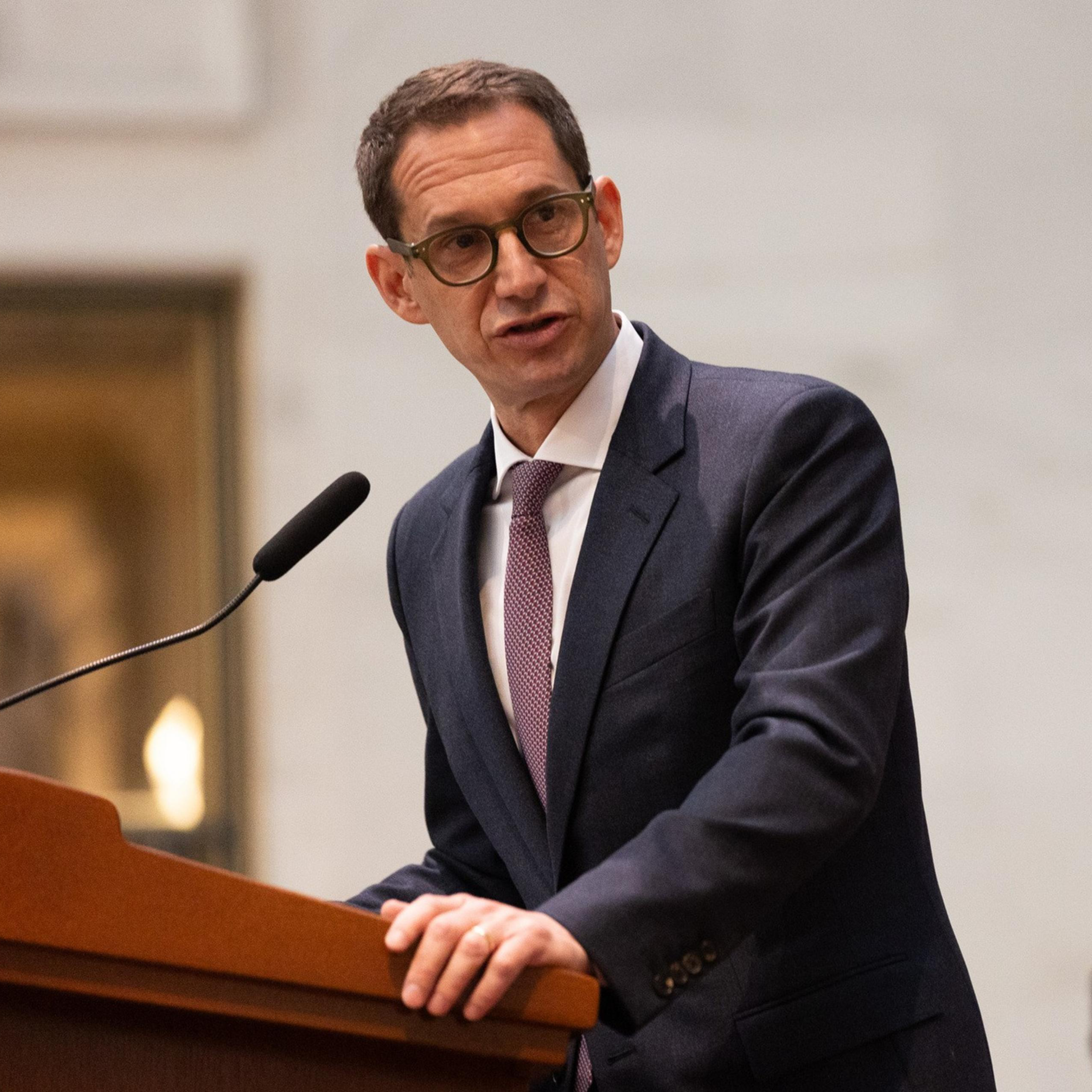Daniel Lurie rose to power in large part because he promised to dismantle the city’s notorious bureaucracy and make government work better for frustrated residents.
Now, the mayor and a coalition of reformers are eyeing the city’s charter — a roughly 540-page governing document, almost twice the size of L.A.’s — as a major step toward that goal. Lurie argues that the behemoth charter stands in the way of a more efficient — and effective — City Hall, and he is considering asking voters to help him shrink it.
Lurie is teaming up with Board of Supervisors President Rafael Mandelman, a moderate ally, and coordinating with the urbanist think tank SPUR for what could become a November 2026 ballot measure that will chip away at the myriad rules nestled in the charter — essentially, the city’s version of a constitution. They argue that excessive and redundant laws have gummed up city operations in a way that makes it difficult to deliver services and address some of San Francisco’s most daunting challenges.
The charter, Lurie said, is “outdated and overly complicated.”
“We are going to take a comprehensive look at how to modernize the charter so that we can serve San Franciscans more effectively, efficiently, and accountably,” he said in a statement.
Lurie and his allies are in the brainstorming phase of what their voter referendum might include. The mayor’s office and others involved in the effort provided The Standard with a glimpse into some of their early ideas for condensing the charter.

Changes under consideration range from the lightly technical to the inscrutably wonky. They include a tweak that would give the city administrator more authority to handle San Francisco’s procurement process, which dictates how the government purchases items such as software. The process, now handled at the department level, has led to an often disjointed bureaucracy, as exemplified by the 20 different software platforms that are used for permitting.
Other ideas proposed by Mandelman are more robust and politically complicated, such as empowering the mayor with new authority over city commissions — a move that would almost certainly spark a fight with the city’s progressive wing.
Mandelman said some of those changes are necessary to make it clear who is in charge of what. The charter, which saw its last major reform in the mid-1990s, has “led to a system that is easy to stop things getting done,” he said.
Meanwhile, SPUR is expected to release a report Wednesday with recommendations on changes to the charter that could be included in a 2026 measure. SPUR CEO Sean Elsbernd, who was chief of staff under Mayor London Breed, said the report (opens in new tab) will include ideas on how to overhaul “the structure of the city administrator’s office” and change “how procurement should work.”
“We have a very complicated document,” Elsbernd told The Standard. “That makes running the government in an efficient manner that much more difficult.”
Changes to the charter require voter approval, meaning residents must be the ones to roll back the regulations they previously approved. The mayor would need Mandelman — plus five other supervisors — to send the measure to the ballot, an easier task after voters last November added moderate allies to the 11-member board. The other way to get a measure on the ballot is through signature gathering, with advocates needing names from 10% of the city’s registered voters.
“I do think it would be good to use this moment of comity to try to make it a little easier to be a good mayor,” Mandelman said.
There is evidence that voters might be open to this idea. Last fall, voters approved Proposition E (opens in new tab), which created a task force to review San Francisco’s sprawling network of roughly 130 commissions overseeing city business and identify which ones could be consolidated or eliminated. The task force has been meeting throughout the year, with a final report expected (opens in new tab) by February.
Critics of the current charter blame the myriad commissions for having overlapping responsibilities and preventing the mayor from advancing their agenda. While the mayor can make appointments to commissions, he needs the Board of Supervisors to approve some of his selections. Mandelman suggested that the measure could grant the mayor unilateral authority over appointments on certain commissions. The mayor could also take over some commission positions that are appointed by the Board of Supervisors, he said.
Other ideas circulating include removing the mayor’s authority to place a ballot measure before voters, and the ability of four supervisors to do the same. Such changes would ameliorate the current situation, in which competing pieces of legislation are pushed before voters. Mandelman also said the rules around the mayor hiring and firing department heads could be relaxed.
The mayor’s office is also considering moving some language from the charter into the administrative code, which lays out the city’s ordinances. That would be significant because while the charter must be amended through voter approval, the Board of Supervisors can make changes to the administrative code.

The measure could be one of several contentious issues on next year’s ballot. Others include Lurie’s parcel tax to fund Muni and a slew of new taxes on corporations, authored by progressive supervisors.
But several organizations have signaled their support for reforming the charter.
Wade Rose, president of Advance SF, a group that advocates for the city’s business interests and is helping with the 2026 effort, likened it to a “house cleaning.”
“Lots of things have been thrown into the closet,” he said, “and it has become too difficult to manage.”


